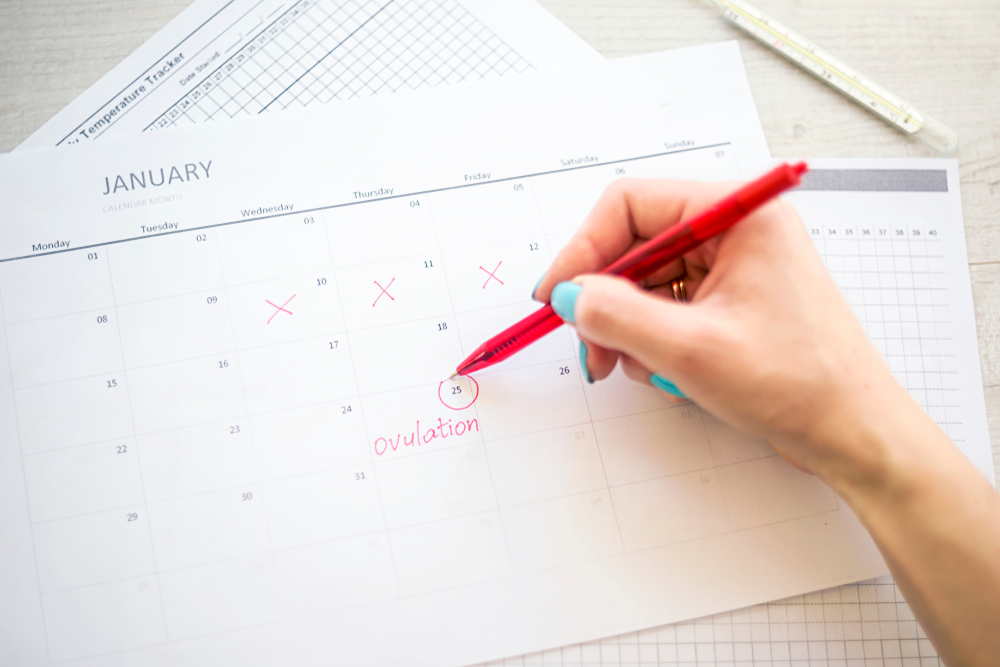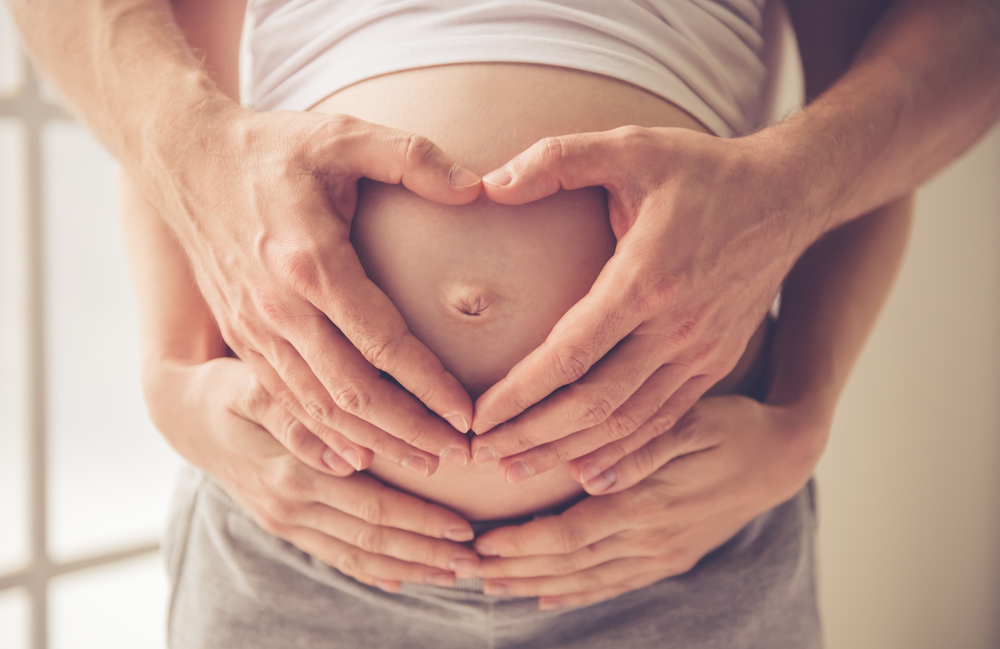How Many Times Should You Have Sex To Get Pregnant
Pregnancy comes with a multitude of changes — physical, emotional, and behavioral. But the events leading up to it are sometimes just as tricky to navigate. Learn about the various factors that come into play, as well as how often you should have sex to conceive.
Age and fertility
There's an undeniable biological link between a person's age and reproductive fertility. Over time, childbearing potential naturally decreases. As such, the best age to successfully conceive and carry a baby to full term is 35 or younger.
Why is this? The female body is born with all the eggs it's ever going to have. The normal aging process gradually lowers the number and quality of eggs.
When is it time to conceive?
There are roughly six days out of the month when the chances of getting pregnant are particularly high. Here's a detailed breakdown of the menstrual cycle to help determine how often you should have sex to conceive:
- Menstruation
Think of your monthly period — when the body sheds the inner layer of the uterus (or endometrium) — as the first phase of the cycle. It lasts anywhere from three days to a full week. Progesterone and estrogen are stimulated to rebuild the endometrial lining, and although the likelihood of conception at this point is very low, it's not impossible.
- Pre-ovulation
Following the end of your period, fertility slowly returns to normal. The presence of vaginal discharge indicates that ovulation is about to occur, and there's a good chance of pregnancy in this phase. That's because sperm are capable of surviving inside the vagina for up to five days and can fertilize the egg once it's finally released.
Take a quiz
Find out what you can do with our Health Assistant
- Ovulation
This phase represents the optimal time for conception and generally comes about two weeks before the next period. Vaginal discharge tends to increase in volume and starts to resemble egg whites. When these symptoms appear, consider taking an ovulation test to confirm. A positive result means that the chances of conception are higher for the next one to three days. However, the window of accuracy for ovulation tests is very small, so it's not an entirely reliable way to determine if ovulation has occurred.
- Post-ovulation
The luteal phase starts right after ovulation and lasts an average of 14 days (though it may range from 10 to 16 days, depending on your cycle). Progesterone rises and falls, while cervical mucus slowly disappears. It's typical during this phase for basal body temperature to go up slightly — about 0.5 degrees Fahrenheit (0.3 degrees Celsius) after ovulation. The likelihood of conceiving is low since the egg has already been released and can only survive for a day.

How to detect ovulation
If you don't want to rely on an ovulation test, it's possible to predict the best time for conception by using an app like Flo, which has a handy tool for tracking the different phases of your cycle. Another way to detect ovulation is to be on the lookout for the following ovulation symptoms:
- Increased basal body temperature
- Clear, stretchy discharge
- Mild pelvic or abdominal pain
- Breast tenderness
- Altered libido
- Light spotting
- Cervical changes
How often should you have sex to conceive?
Generally speaking, experts recommend having intercourse once per day when fertility is at its peak to boost the chances of pregnancy. With an app like Flo, you'll be able to pinpoint your fertile window each month. Remember that the onset of ovulation symptoms also presents the perfect opportunity to take an ovulation test.
Lastly, your health care provider can be an excellent resource on how often you should have sex to conceive. Furthermore, they can check on your health, your partner's health, and the health of the eggs and sperm.
Is it possible to get pregnant after having sex only once?
Yes, absolutely. That's why it's crucial to use protection if you're not trying to have a baby. On the other hand, if you are wondering how often you should have sex to conceive, it depends on which phase you're currently in. With the aid of ovulation tracking, successful conception could occur after having sex just once.
How long does it take to become pregnant after having sex?
The clock doesn't start ticking immediately after sex. In fact, it can take up to five days for the sperm and egg to meet. Another six to 10 days may be required for the fertilized egg to implant itself in the uterine lining, officially signaling the start of pregnancy.
The production of certain hormones, like human chorionic gonadotropin, spikes, and light bleeding along with implantation cramps may appear. If you suspect you may be pregnant, take an at-home test or visit a health care provider.

How to boost fertility
Aside from tracking ovulation dates with the Flo app, the following lifestyle choices may help increase the chances of conception:
- Maintain a healthy weight
Research shows that people who are overweight or underweight have a harder time conceiving. Consult a health care provider or a registered nutritionist about a weight management plan before trying to get pregnant.
- Eat a well-balanced diet
A diet with the right amounts of macro and micronutrients can be important for healthy fertility. Talk to an expert about how to make the proper adjustments and be sure to stay hydrated. Some studies show that replacing animal protein with vegetable protein can have a positive effect on your fertility.
- Quit smoking and drinking
Giving up smoking and drinking alcohol can help improve the chances of conception.
- Reduce stress
Finding productive ways to manage stress and anxiety may also help improve fertility.
- Exercise
Regular physical training can have a positive effect on fertility. Make sure to avoid exhausting workouts as this can have the opposite effect and make it harder to conceive.
- Consult your OB-GYN
If you have irregular periods or trouble getting pregnant, then it might be good to make an appointment with your OB-GYN to find out the cause.
Is frequent sex harmful to your health?
As always, moderation is key. Too much sex could cause lower back pain, pulled muscles, chafing, and other side effects. However, if you're actively trying to conceive, aim to have sex at least once a day and be attentive to how you feel.
How Many Times Should You Have Sex To Get Pregnant
Source: https://flo.health/getting-pregnant/trying-to-conceive/sex-for-getting-pregnant/how-often-sex-to-conceive
Posted by: whitespenth.blogspot.com

0 Response to "How Many Times Should You Have Sex To Get Pregnant"
Post a Comment